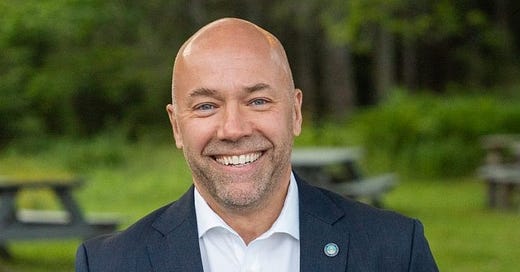Halifax’s new mayor and council are heading into their first budget season. It’s easily the most high profile part of municipal government (though that isn’t saying much). And mostly because people hate property tax increases.
Well, we just received the key piece of data, with the PVSC releasing updated assessments for 2025. Assessed property values rose 9.9% to $106bn. But because of the CAP, that is irrelevant. What matters is the 7.7% increase to taxable assessed value, to $82bn.
That’s extra meaningful because the new Mayor, Andy Fillmore, made a 2-year tax rate freeze a cornerstone promise of his campaign. Given his strong mandate from voters, and his past experience in municipal government, we should take the mayor at his word. Surely his campaign promise wasn’t about confusing folks on the difference between tax rates and tax bills. That’s too cynical, and this budget season, we will see if Fillmore is a “promises made, promises kept” kind of leader.
So the 7.7% assessment increase should translate roughly 1:1 to revenue. Given that inflation since the last budget was about 1.5% in Nova Scotia, the extra revenue should put a dent into the municipality’s budget woes.
What’s less good is the ongoing and expanding damage of the property tax cap. There’s now $23bn in property value that is going untaxed. And the 7.7% assessed value increase is a total, that’s not what any typical homeowner should expect.
In fact, taking the Mayor at his word on freezing rates, 90% of residential properties will see only a 1.5% tax hike (which is the CAP rate based on inflation in Nova Scotia through November 2024). What makes up the gap between 1.5% and 7.7% is 1) growth of new properties 2) assessment increases on uncapped properties like apartments and most insanely 3) massive hikes on homebuyers who lose the capped assessments when they buy.
That’s the basic - and often unspoken - unfairness of our property tax system, that the few young people able to buy homes are hit by punishing tax hikes, all to keep the larger, older, richer majority’s tax bills frozen from the day they bought (in inflation adjusted terms).







Yes but, if you remove the cap, that would force a lot of long term residents to sell, which would drive down prices and assessments. So no real gain to the city and much pain to voters.